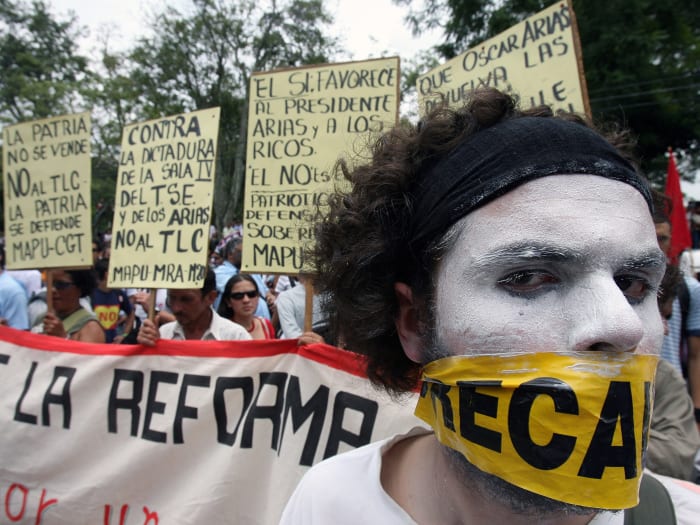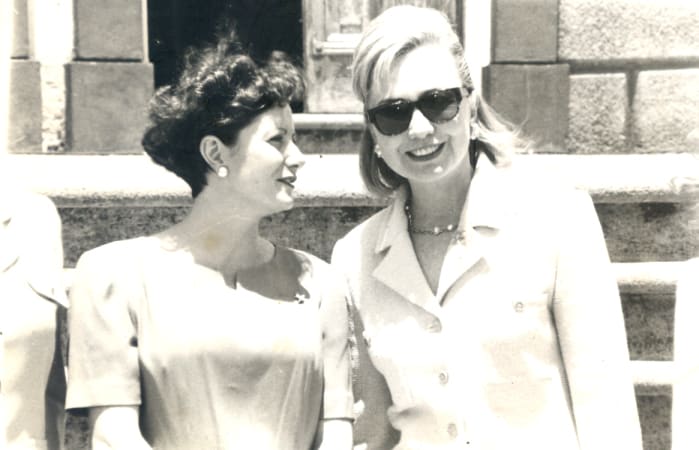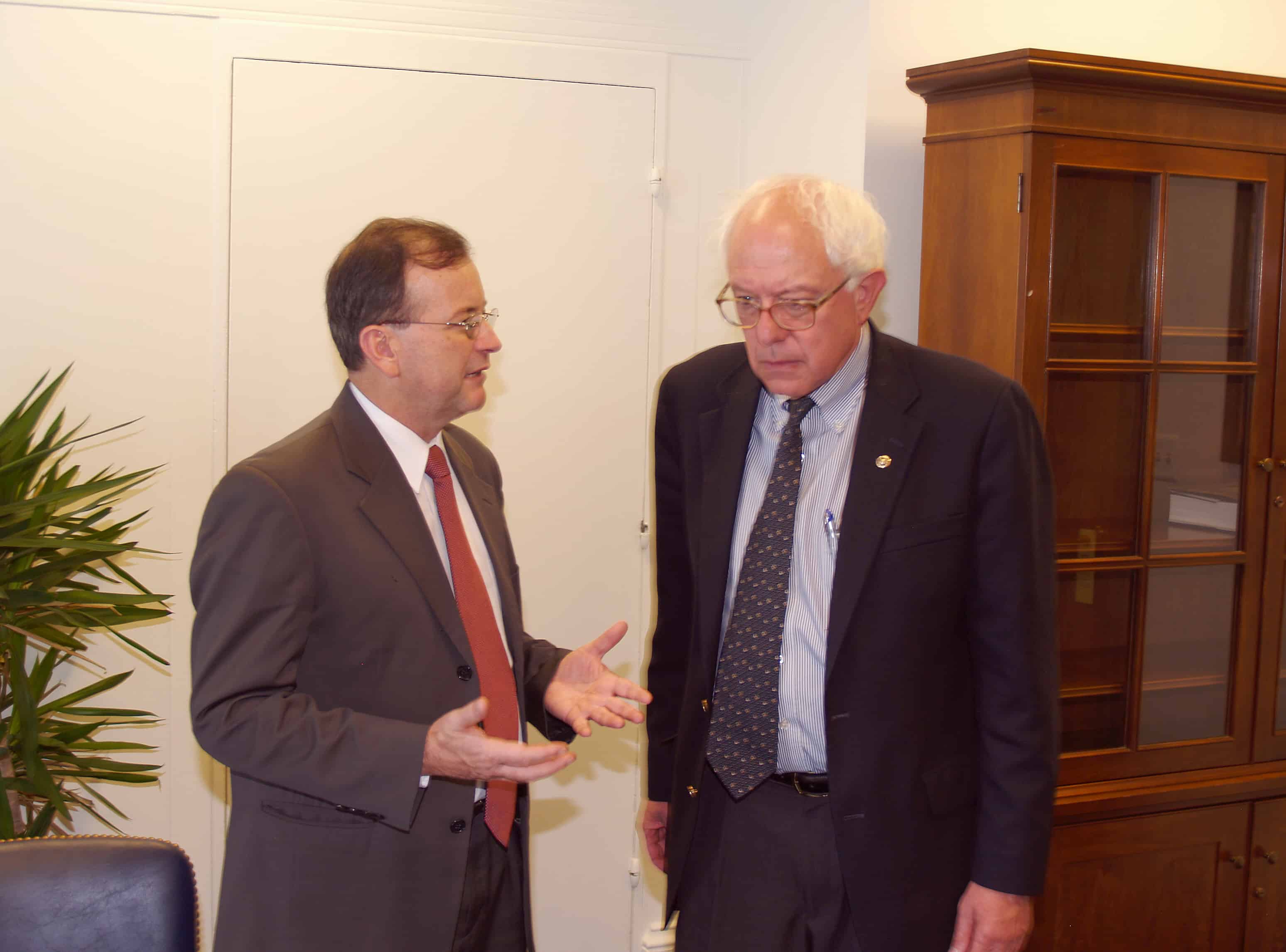Vermont senator and surging Democratic Party presidential candidate Bernie Sanders is no stranger to Costa Rica, having come here in 2007 to lend his voice to a campaign against the Central American-U.S. Free Trade Agreement, CAFTA-DR.
Sanders visited the country exactly eight years ago, in September 2007, at the invitation of Citizen Action Party founder Ottón Solis. Sanders participated in a University of Costa Rica forum on CAFTA and held a press conference at Solis’ residence in the La Granja neighborhood of San Pedro, east of the capital.
Maine Democratic Rep. Michael Michaud accompanied the Vermont senator.
Sanders’ principal message at the time was that the United States would not withdraw benefits under the Caribbean Basin Initiative (CBI) if Costa Rica opted out of CAFTA. The Vermont senator said at the time that the CBI was backed by U.S. law, and its withdrawal could not be used by the government to punish Costa Rica for failing to pass CAFTA.
CAFTA proponents loudly trumpeted the possibility of the U.S. terminating CBI benefits if Costa Ricans voted against the free trade agreement in October 2007. The referendum narrowly passed.
While Sander’s current surge in U.S. presidential polls shows a tilt toward the left in popular opinion in the United States, Costa Rica has undergone its own leftward swing. Solis’ Citizen Action Party won the 2014 elections bringing Luis Guillermo Solis to the presidency while nine lawmakers took office for the leftist Broad Front Party.
Even with its electoral success, the relatively new PAC party has struggled internally to find its identity. Political analysts have noted that some PAC lawmakers and members of the rank-and-file seem to share the leftist ideology of the Broad Front.

The conservative daily La Nación was less than thrilled with Sander’s foray into Costa Rican politics. In a lengthy 2007 story by La Nación’s current Editor-in-Chief Armando González, the newspaper reported that Sanders and Michaud had voted against the expansion of CBI, and that Sanders “has a long history of opposition to any trade agreement whose advantages contribute to creating employment in other countries.”
“So radical is Sanders’ position,” González wrote, “that on two occasions he voted to withdraw the United States from the World Trade Organization, an international trade regulatory organization made up of 151 counties of all ideologies and geographic regions.”
The newspaper alleged that Sanders and Michaud opposed CAFTA because the agreement shipped jobs from the U.S. abroad creating employment in Central America and the Dominican Republic.
At the press conference, Sanders said CAFTA was bad for workers on both sides of the border. On the U.S. side, workers lost well-paid jobs, while south of the border workers were exploited for their cheap labor, the senator said.
At the UCR forum, Sanders said CAFTA was approved by one vote in the U.S. House of Representatives only after intense lobbying by multinational corporations and wealthy individuals.
“In the United States the greatest beneficiaries of the free-trade treaties and the economic policy that is being implemented are the richest individuals, and the gap between rich and poor is growing wide every day,” Sanders said.
Sanders’ opposition in the current Democratic race for the White House in 2016, former First Lady and Secretary of State Hillary Clinton, also has visited Costa Rica, accompanying then-President Bill Clinton in May 1997.

According to a poll published last Sunday, Sanders has overtaken Clinton, who had long been a favorite for the Democratic nomination, in early primary states, Newsweek reported. In Iowa, Sanders leads Clinton 43 percent to 33 percent, and in New Hampshire, his lead is 52 percent to 30 percent.
Correction: An earlier version erroneously stated that Sanders and Michaud had voted against the expansion of CAFTA. They had voted against the expansion of CBI. We regret the error.






